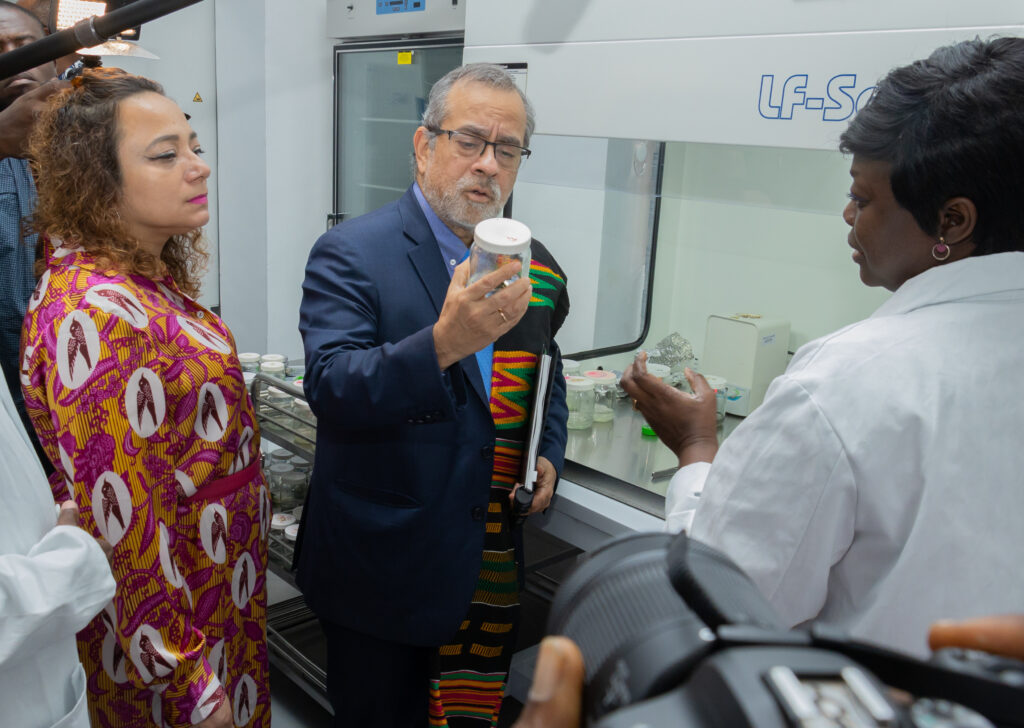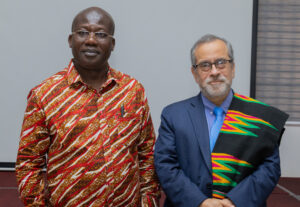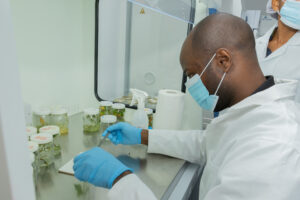Investments in WACCI can change Ghana’s status as world’s largest importer of tomato seeds

A 2010 Working Paper by the International Food Policy Research, shows that all improved vegetable seeds that are planted in Ghana are imported. Almost 13 years on, the situation hasn’t changed. As Ghana is the largest importer of tomato seeds in the world, according to trade data from the website Volza. The data shows tomato seed import shipments in Ghana stood at 44, imported by seven Ghana importers from six suppliers.
Ghana imports most of its tomato seed from India, South Africa and France and is the largest importer of tomato seed in the world, the information says.
Ghana is also estimated to import some 840,000 tons of tomatoes every year.

While at it, Ghana has some world class seed developing centres in the country. One of such, designated as one of African Centres of Excellence is the West Africa Centre for Crop Improvement (WACCI) at the University of Ghana, Legon. Started some 15 years ago, WACCI which trains Africans on crops in Africa also develops varieties of crops and seeds.
WACCI which was started with funding from the Alliance for Green Revolution in Africa (AGRA) has received funding from the World Bank.
With $11.5 million from the AGRA, WACCI has trained plant breeders and seed scientists in Africa. WACCI benefitted from a $150 million World Bank funding for Centres of Excellence in Africa.
The work of WACCI has since increased the number of PhDs and other scientists in the area of crop development and seed production for Africa.
During a visit to the Centre by a team from the World Bank, led by Dr. Jaime Saavedra, the World Bank’s Global Director for Education, Prof Eric Yirenkyi Danquah, Founding Director of WACCI said with $40 million investments the Centre has trained 105 graduates in PhD programmes and 30 in Mphil and have enrolled students from over 15 African countries.

“Our alumni attracted $57 million for their institutions and research. Our students and faculty have more than 250 publications and we have given $350,000 seed grants to seven early career scientists,” Prof Danquah said.
He added that the Centre is thinking of the future and has therefore set up a $50 million endowment fund for ensure sustainability, and called for support from the World Bank and Development partners.
Prof Danquah indicated that the National Research and Innovation Fund should have been in place over six years ago for scientists in Ghana to access funding for research.
In his remarks, Dr Saavedra said to have sustained growth in a country like Ghana, “you need the brain power. You don’t need to only train them, but also create the opportunity for them to thrive, or they would leave the country.”
“It is important to ensure that research here translates into development,” he added.
Dr Saavedra and the team visited the labs at the Centre and observed scientists working on projects.
With enough investments, WACCI and other centres in the country can develop the capacity of crop scientists to improve and increase plant breeding in the country to curtail the high imports of seeds, such as tomato seeds, that often don’t so well as they should, due to climatic conditions.
By Emmanuel K Dogbevi
Copyright ©2023 by NewsBridge Africa
All rights reserved. This article or any portion thereof may not be reproduced or used in any manner whatsoever without the express written permission of the publisher except for the use of brief quotations in reviews.

Research on tomato seeds